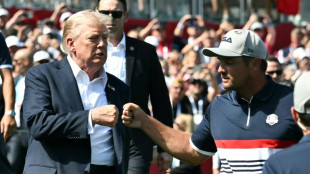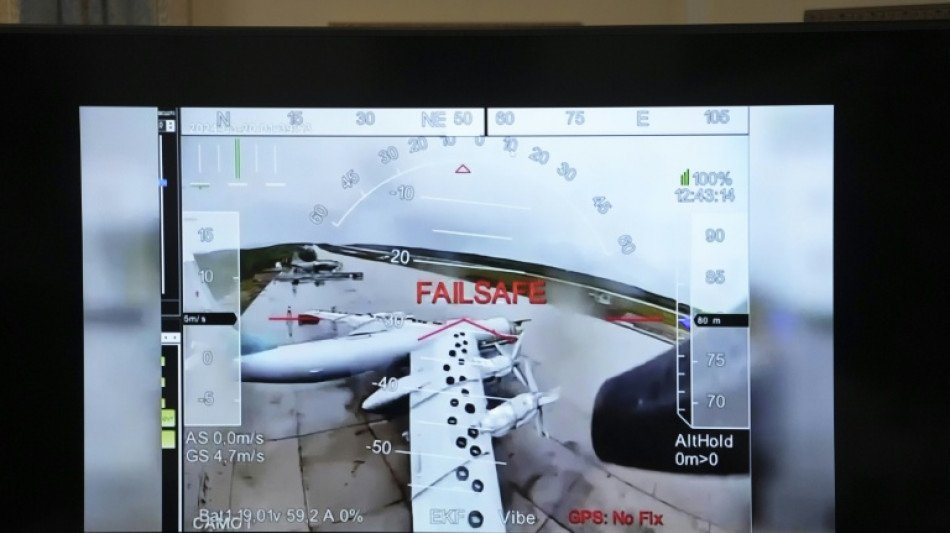
-
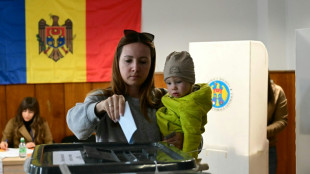 Moldova's pro-EU party hails poll win despite 'dirty' Russian tactics
Moldova's pro-EU party hails poll win despite 'dirty' Russian tactics
-
Typhoon Bualoi kills dozens in Vietnam and Philippines

-
 Wallabies' big-man Skelton ready to impose himself against All Blacks
Wallabies' big-man Skelton ready to impose himself against All Blacks
-
Robertson wants All Blacks to 'pressure' Wallabies in rematch
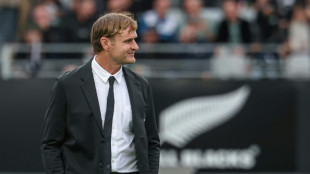
-
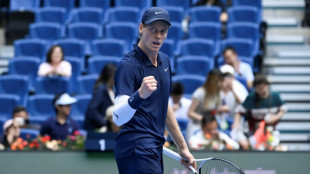 Sinner cruises into China Open semi-finals as Swiatek moves on
Sinner cruises into China Open semi-finals as Swiatek moves on
-
GSK switches CEO as Trump tariffs test pharma
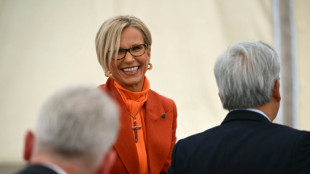
-
 Trump to push Netanyahu on Gaza peace plan at White House
Trump to push Netanyahu on Gaza peace plan at White House
-
Most markets track Wall St gains after US inflation data

-
 Typhoon Bualoi batters Vietnam coast, killing 11
Typhoon Bualoi batters Vietnam coast, killing 11
-
Germany's Lufthansa to slash 4,000 jobs by 2030
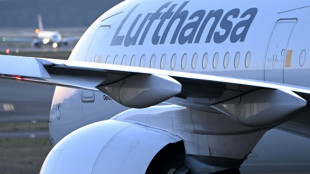
-
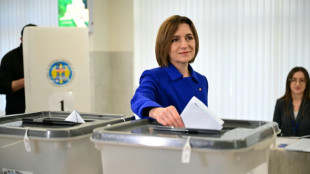 Moldova's pro-EU party wins key polls after Russian meddling claims
Moldova's pro-EU party wins key polls after Russian meddling claims
-
Mourinho Chelsea return prompts old memories, mixed feelings
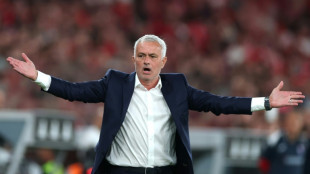
-
 'Predators': how reality TV explains Epstein obsession
'Predators': how reality TV explains Epstein obsession
-
Most Asian markets track Wall St higher after US inflation data

-
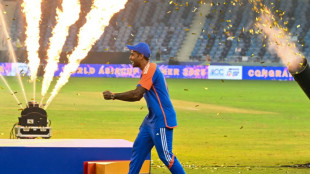 India, Pakistan trade accusations after Asia Cup trophy debacle
India, Pakistan trade accusations after Asia Cup trophy debacle
-
Power-packed Australia favourites to rewrite World Cup history

-
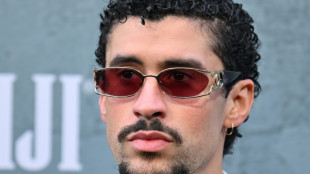 Latin artist Bad Bunny to headline Super Bowl half-time show
Latin artist Bad Bunny to headline Super Bowl half-time show
-
Air France, Airbus back on trial over doomed 2009 Rio flight
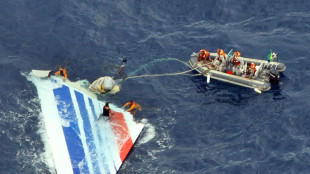
-
 India's divine designs meld with AI at Durga Puja festival
India's divine designs meld with AI at Durga Puja festival
-
Donald won't rule out Ryder Cup captain return after Europe win
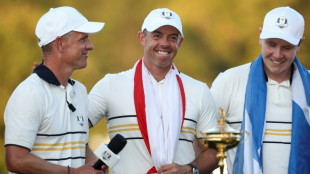
-
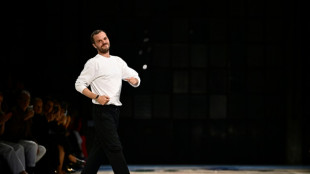 Who is Matthieu Blazy, the new man at Chanel?
Who is Matthieu Blazy, the new man at Chanel?
-
'New chapter': Paris Fashion Week to showcase industry makeover

-
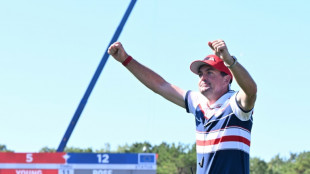 Bradley on US Ryder Cup loss: 'This is no one's fault but mine'
Bradley on US Ryder Cup loss: 'This is no one's fault but mine'
-
Four killed in attack on northern US Mormon church
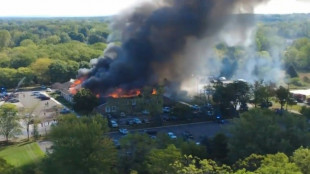
-
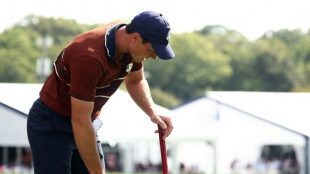 Bradley calls for Ryder Cup rule change for injuries
Bradley calls for Ryder Cup rule change for injuries
-
McIlroy slams 'unacceptable' Ryder Cup heckling
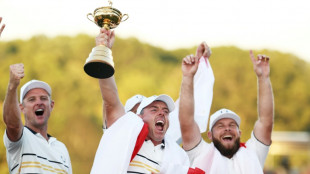
-
 Embattled Australia telco giant hit by another major outage
Embattled Australia telco giant hit by another major outage
-
31 Concept Accelerates Next-Gen DPI Leadership With Strategic Acquisition of Xynthor AI

-
 Mahomes leads resurgent Chiefs in Ravens rout, Eagles stay unbeaten
Mahomes leads resurgent Chiefs in Ravens rout, Eagles stay unbeaten
-
Moldova's pro-EU party tops polls hit by Russian meddling claims
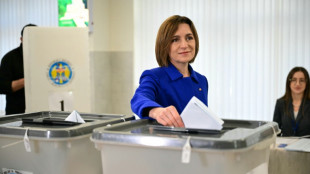
-
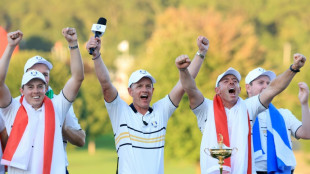 Europe win emotional Ryder Cup triumph after US fightback
Europe win emotional Ryder Cup triumph after US fightback
-
Two dead after shooting, fire at US Mormon church
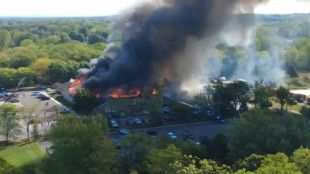
-
 Europe must step up efforts to protect environment: report
Europe must step up efforts to protect environment: report
-
Eagles down Bucs to stay unbeaten, Bills march on

-
 Incumbent absent as Cameroon presidential campaigning picks up
Incumbent absent as Cameroon presidential campaigning picks up
-
AC Milan beat champions Napoli to make Serie A title statement
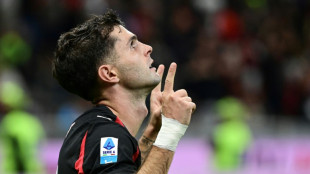
-
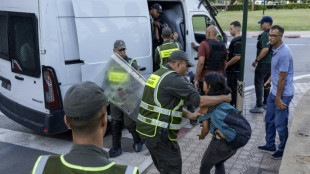 Scores arrested on second day of Morocco protests: NGO
Scores arrested on second day of Morocco protests: NGO
-
'One Battle After Another' debuts top of N. America box office
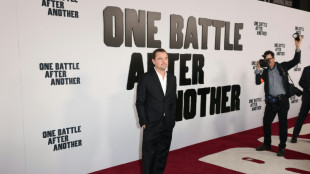
-
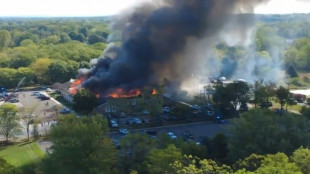 Two dead after US shooting, fire at Mormon church
Two dead after US shooting, fire at Mormon church
-
Mitchell open to coaching first Women's Lions in 2027

-
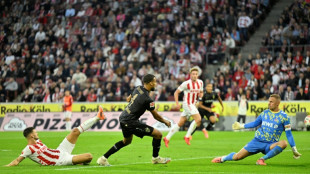 Vagnoman sends Stuttgart past Cologne in Bundesliga
Vagnoman sends Stuttgart past Cologne in Bundesliga
-
Stars turn out for Armani's final collection in Milan

-
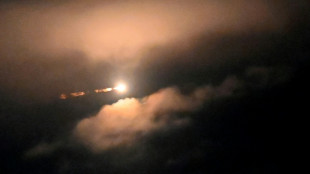 Massive Russian drone and missile attack kills four in Kyiv
Massive Russian drone and missile attack kills four in Kyiv
-
Arsenal showed 'ambition' of title winners in Newcastle win: Arteta
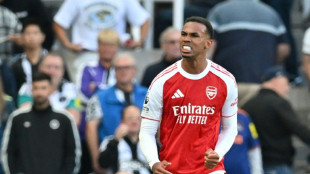
-
 Free Picasso park to open in Paris in 2030
Free Picasso park to open in Paris in 2030
-
Barca beat Real Sociedad to top Liga as Yamal returns
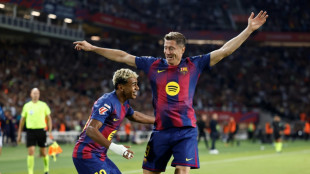
-
 Arsenal strike late for 'beautiful' Newcastle win, close in on Liverpool
Arsenal strike late for 'beautiful' Newcastle win, close in on Liverpool
-
Barca beat Real Sociedad to go top as Yamal returns
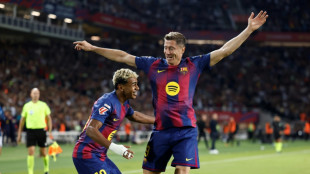
-
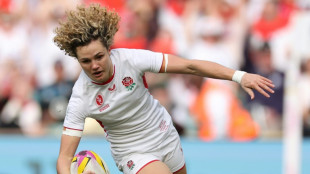 Kildunne says 'no reason' England can't win Rugby World Cup again
Kildunne says 'no reason' England can't win Rugby World Cup again
-
Arsenal strike late to beat Newcastle, close in on Liverpool


NATO learns as Ukraine's 'creativity' changes battlefield
Ukraine's "creativity", including its massive "Spider's web" drone attack deep inside Russia, holds profound lessons for Western militaries, the top NATO commander overseeing battlefield innovation told AFP.
"What the Ukrainians did in Russia was a Trojan horse -- and the trojan horse was thousands of years ago," French Admiral Pierre Vandier, NATO's Supreme Allied Commander Transformation, said in an interview.
"Today, we see this kind of tactic being reinvented by technical and industrial creativity."
Vandier said the operation showed how crucial innovation and adaptation were for victory, as modern warfare changes at lightning speed.
"It was a real coup."
"We are entering a dynamic era where armies must rely on both major planning but also adaptive planning," the navy commander said.
"We will witness continuous innovation where, week by week, month by month or year by year, we will be able to invent things we hadn't anticipated."
- 'Must act quickly' -
Faced with the Russian threat, NATO this week adopted new objectives for its defence capabilities to ensure it will be able to repel Moscow.
But Western intelligence agencies have warned that the Kremlin is reconstituting its forces at a pace far outstripping NATO and could be ready to attack the alliance in as little as four years.
"Time is truly a crucial parameter. We must act quickly," Vandier said.
The admiral, who previously commanded France's flagship Charles De Gaulle aircraft carrier, said NATO needed to amass the forces to dissuade any adversary from trying an attack.
"When you say 'I'm defending myself', you have the weapons to defend. When you say you deter, you have the weapons to deter," he said.
"That's what should prevent war -- making the adversary think: "Tomorrow morning, I won't win."
NATO countries under pressure from US President Donald Trump are expected to agree a major increase in their defence spending target at a summit in The Hague this month.
That should see a dramatic surge in spending on military hardware.
But if cheap Ukrainian drones can inflict billions of dollars in damage on Russian bombers, is it still worth investing in vastly expensive systems?
"No-one in the military sphere will tell you that we can do without what we'll call traditional equipment," Vandier said.
"However, we are certain we need new equipment to complement it."
Officials say that over 70 percent of battlefield casualties in Ukraine are caused by drones.
But while drones are indispensable in modern warfare, they are not omnipotent.
"Today, you won't cross the Atlantic with a 10-meter-long (33-foot-long) drone. You won't easily locate submarines with such tools," Vandier said.
"If they accompany your large platforms, you'll be able to achieve much better results at much lower costs."
- Integrating new technologies -
The admiral, who works out of NATO's US base in Norfolk, Virginia, said the major challenge was "integrating new technologies and new combat methods, based on what we've witnessed in Ukraine".
NATO and Ukraine have established a centre in Poland designed to help the alliance learn lessons from Russia's invasion of its neighbour.
Artificial Intelligence and robotics are also increasingly having an impact and are set to help reshape the battlefield.
"All modern armies will have piloted and non-piloted capabilities," Vandier said.
"It's much more efficient to deliver ammunition with a ground robot than with a squad of soldiers who could face a 155-millimeter (six-inch) shell."
This transformation of military capabilities within the alliance, which NATO aims to expand by at least 30 percent over coming years, will come at a significant cost, estimated in hundreds of billions of euros (dollars).
Vandier insisted that while the financial effort was "substantial" it was "fully realistic".
"Today, we have all the tools. We have the engineering. We have the expertise. We have the technology. So, we need to get started," he said.
P.Vogel--VB

